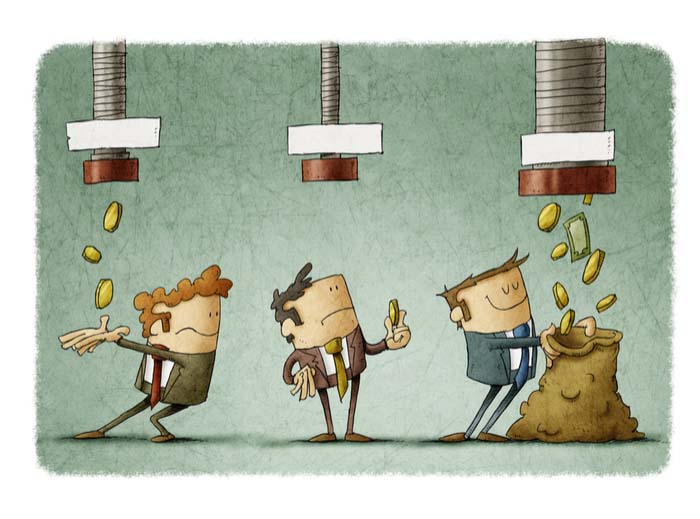The journalism advocacy group Free Press recently published a proposal calling on Congress to start taxing Silicon Valley’s biggest data harvesters. The proceeds will go to the struggling journalism industry.

The organization compares the proposed tax to a carbon tax. It would transfer wealth from those companies profiting from the spread of misinformation.
Of course, the “what should we do about journalism” question has been floating around for years. The question is whether all news should take on the publicly-funded NPR/PBS model?
Or, should big tech share advertising revenue with the news media, regardless of engagement rates?
Big tech says they plan on funding journalism projects
Facebook has pledged $300 million to help fund quality journalism, following Google’s 2018 pledge for the exact same amount.
As it stands, Facebook and Google both make billions of dollars through ads. This makes it difficult for independent publishers to generate revenue through ads themselves.
Facebook has reportedly put funds aside for media projects. For example, Facebook made a $16 million grant for journalism initiatives such as Report for America and the Pulitzer Center. Apparently, the platform has some other projects in the works involving Facebook Watch. This pays news outlets like BBC, Fox, and ABC to create programming for the social platform.

Facebook also says it’s working hard to help news outlets sell subscriptions. This certainly sounds good in theory, but how many subscriptions will people realistically shell out for?
Though this is purely anecdotal, it seems that over the past few months, there has been an uptick in paywalled content.
People might pay for a handful of their favorite publications. However, adding another series of fragmented subscription services to the mix won’t cut it.
One of Mark Zuckerberg’s Facebook blogs from 2017 discusses the need for quality journalism and civil discourse. However, the platform still seems to prioritize the viral, often low-grade content that generates ad revenue.
Big tech endowments could have a negative impact

There’s no doubt that the state of reporting is in crisis mode. According to a study from Nieman Labs’ site, communities that lose a local newspaper experience an increase in political polarization.
Big tech’s proposed contribution to local news outlets sounds like a potential solution. However, it might not be the best path toward balanced news.
An article from the Columbia Journalism Review has another stance. While journalism’s financial woes and big tech’s dominance are both important issues, the two shouldn’t be conflated with one another.
Yes, big tech does get the ad revenue that news outlets used to get. However, direct funding could exacerbate the spread of misinformation. Let’s face it, this has caused enough damage already.
Sure, Facebook has begun fact-checking the articles posted to the site. However, there’s still the issue that it’s in the platform’s best interest to promote the top performing content over important, unbiased news updates.
What kind of taxes does big tech pay anyway?

In the U.S., not much. Last year, Amazon paid exactly $0 in corporate taxes, while Facebook paid about 4%.
In the EU, things are a little better, but not by much. The European Commission reports that tech companies pay about 9% of their profits. Traditional companies pay roughly 23% in taxes.
Guardian reporter John Harris brings up a good point. He says that big tech has dramatically changed societies across the globe. However, big tech is doing little to offset the fallout caused by digital disruptions.
His piece also highlights the fact that the rationale behind corporate tax breaks doesn’t quite work with massive tech companies. This is because they’re not reinvesting their savings into hiring more people.
Could a Facebook tax actually happen?

Silicon Valley residents recently passed a bill that approved new taxes on tech companies to offset the massive income gap. The proceeds go toward fighting homelessness and increasing affordable housing, not journalism. At the end of the day, it’s one example of tech taking responsibility for its impact on the community.
There are similar efforts currently underway in Austria, Australia, and the United Kingdom. Austria is moving forward with a plan to tax tech giants that generate profits in the country.
BBC correspondent David Silleto says that extra cash from government tax breaks introduces its own set of political questions. Namely, will governments then have the power to control which stories get published? Will they suppress balanced information?
Obviously, there’s a lot to consider and a lot at stake. We’ve already seen the devastating impact on social media, digital advertising, and reliable news sources. Hopefully, we’ll find a solution sooner, rather than later.

After destroying local news, Facebook throws $300 million at local news
Read Now ►

